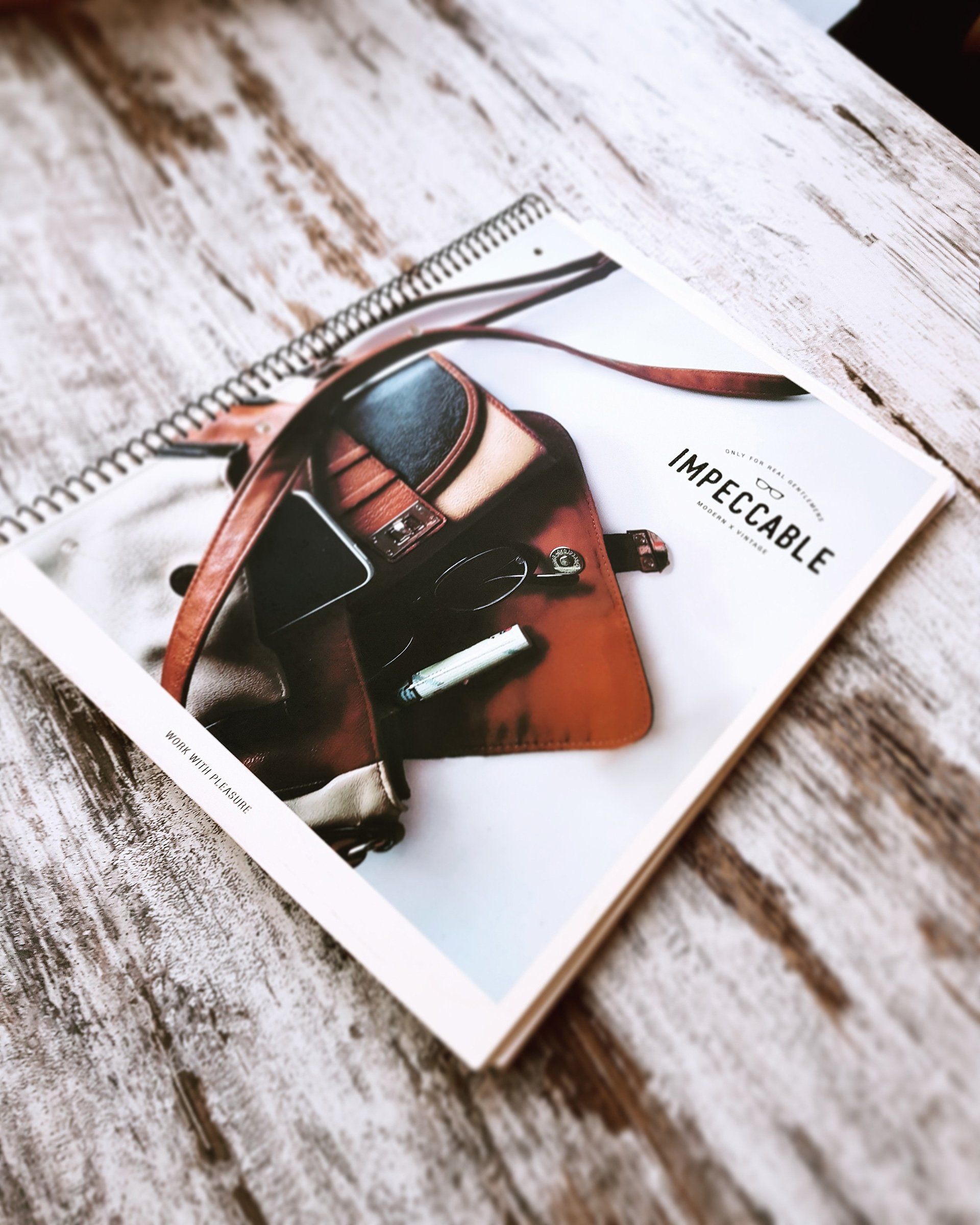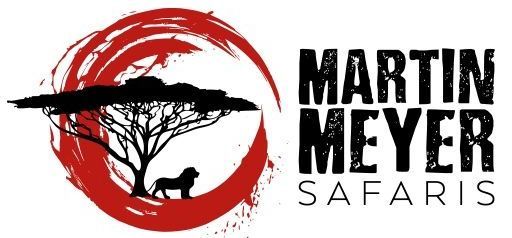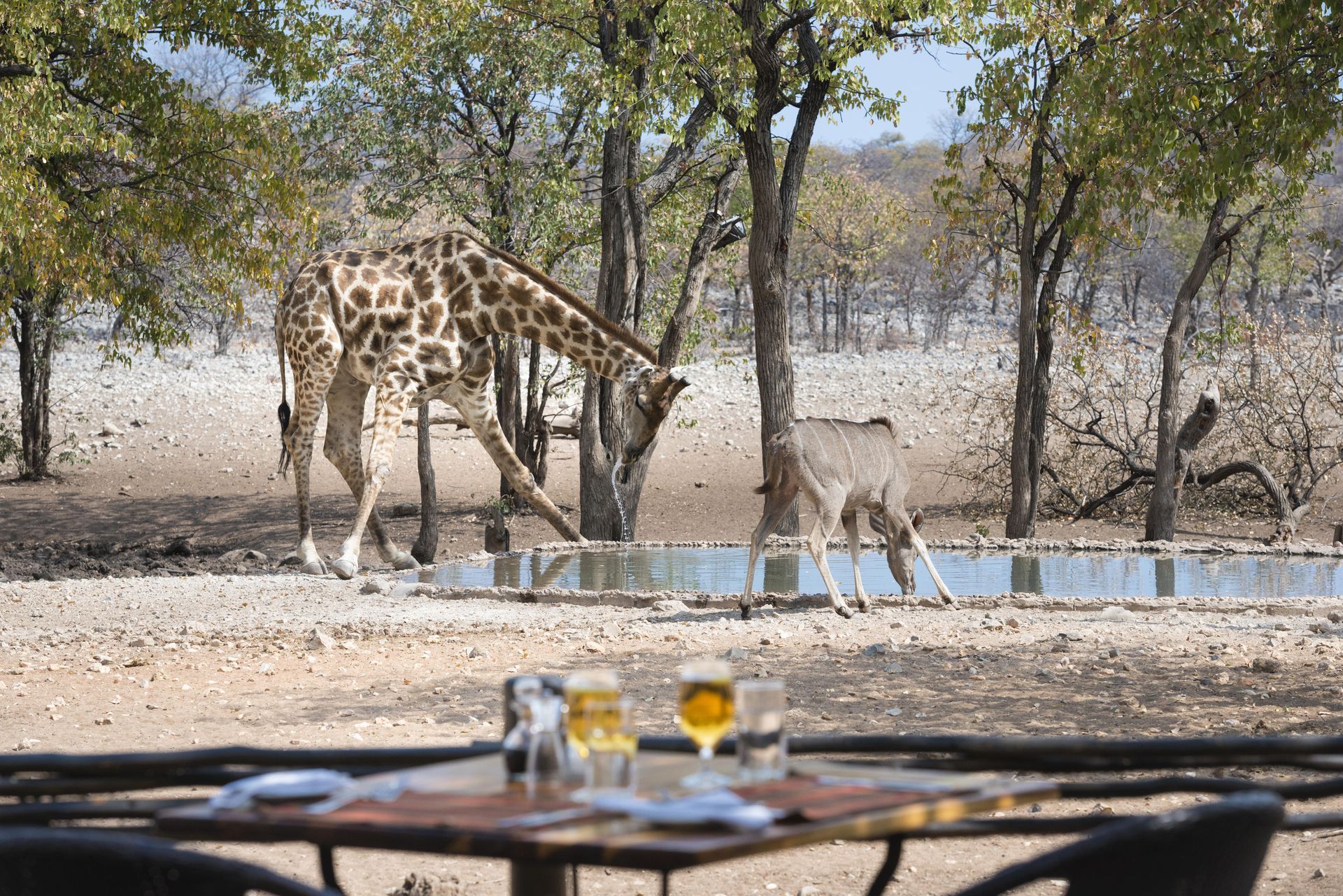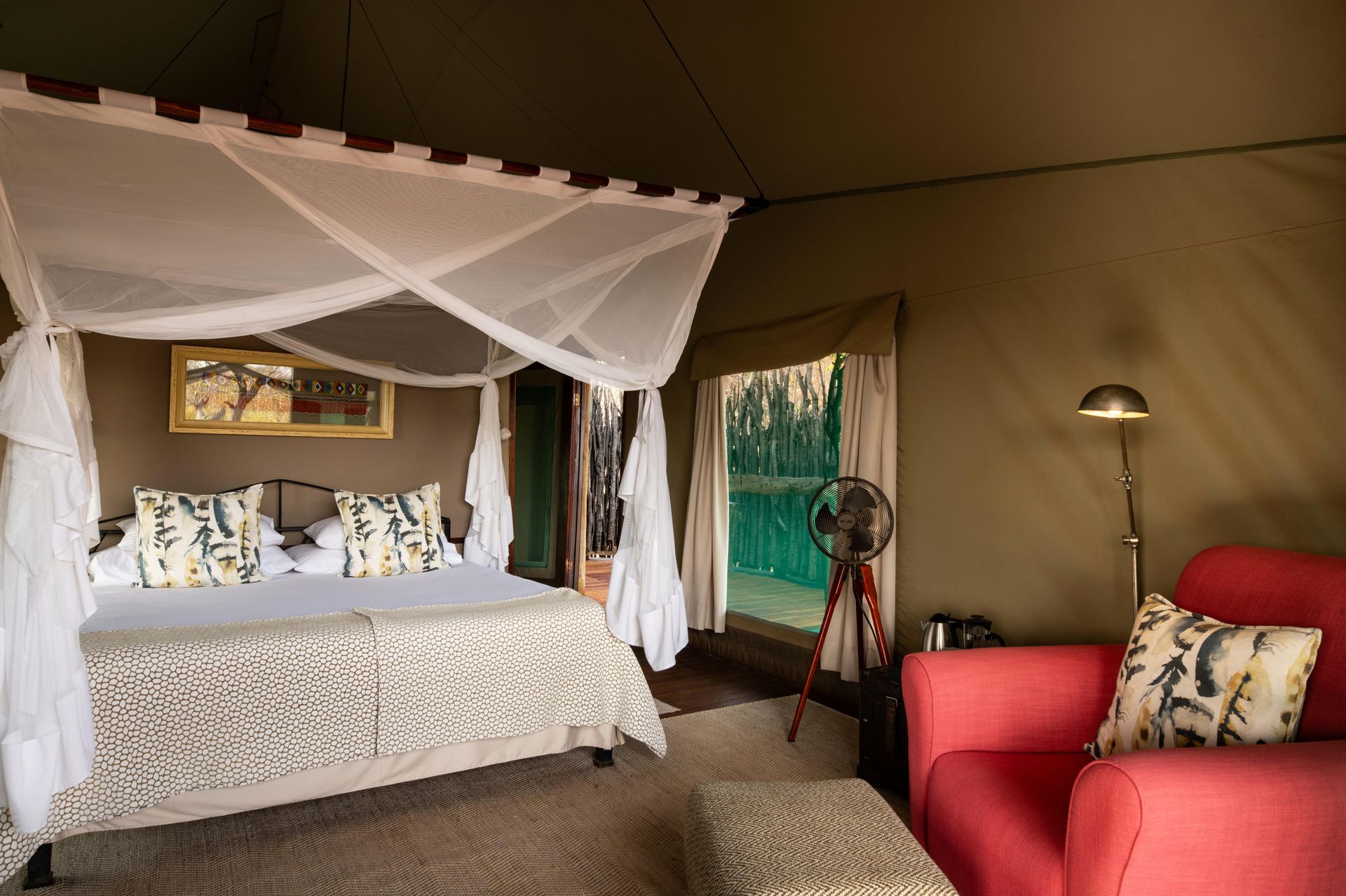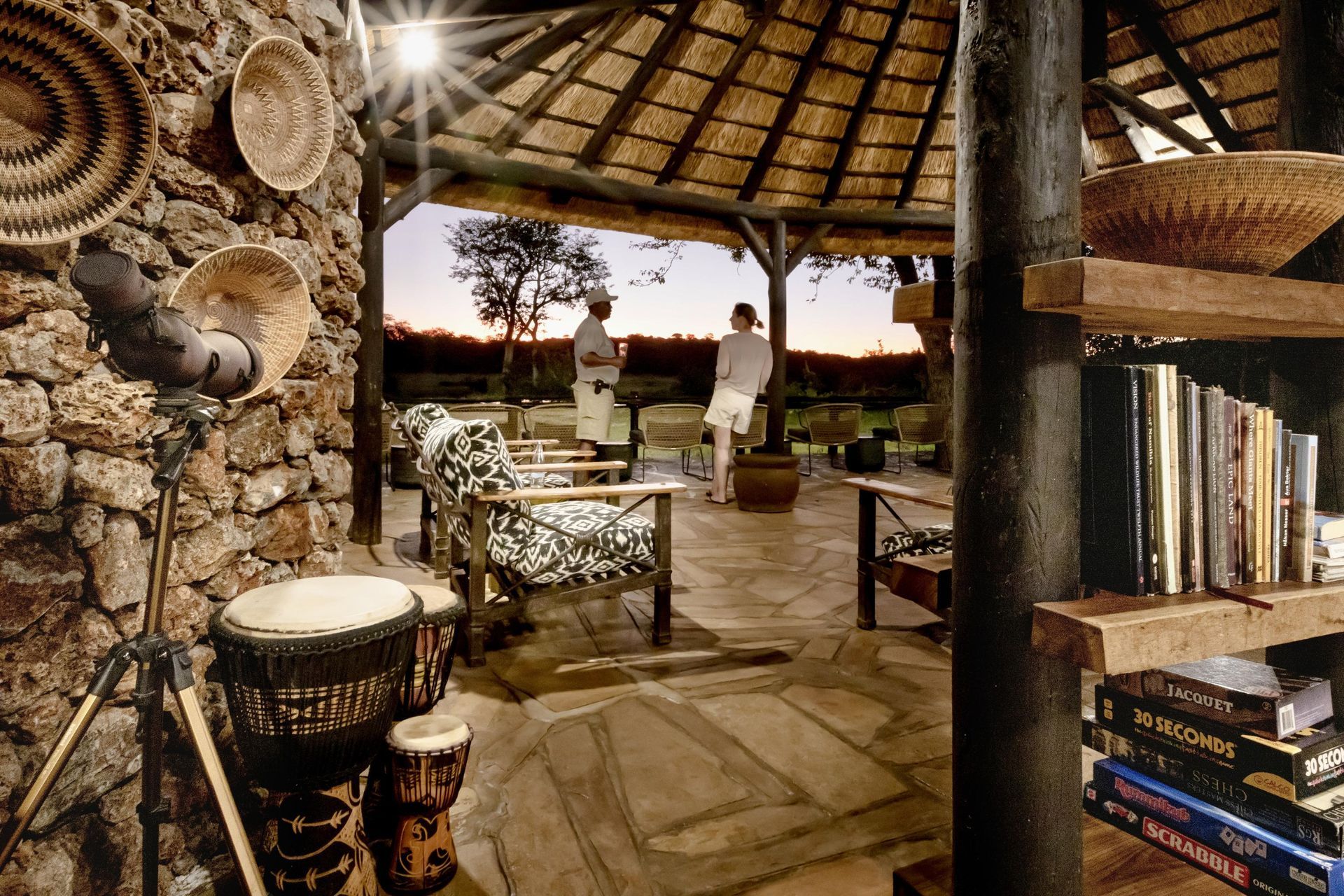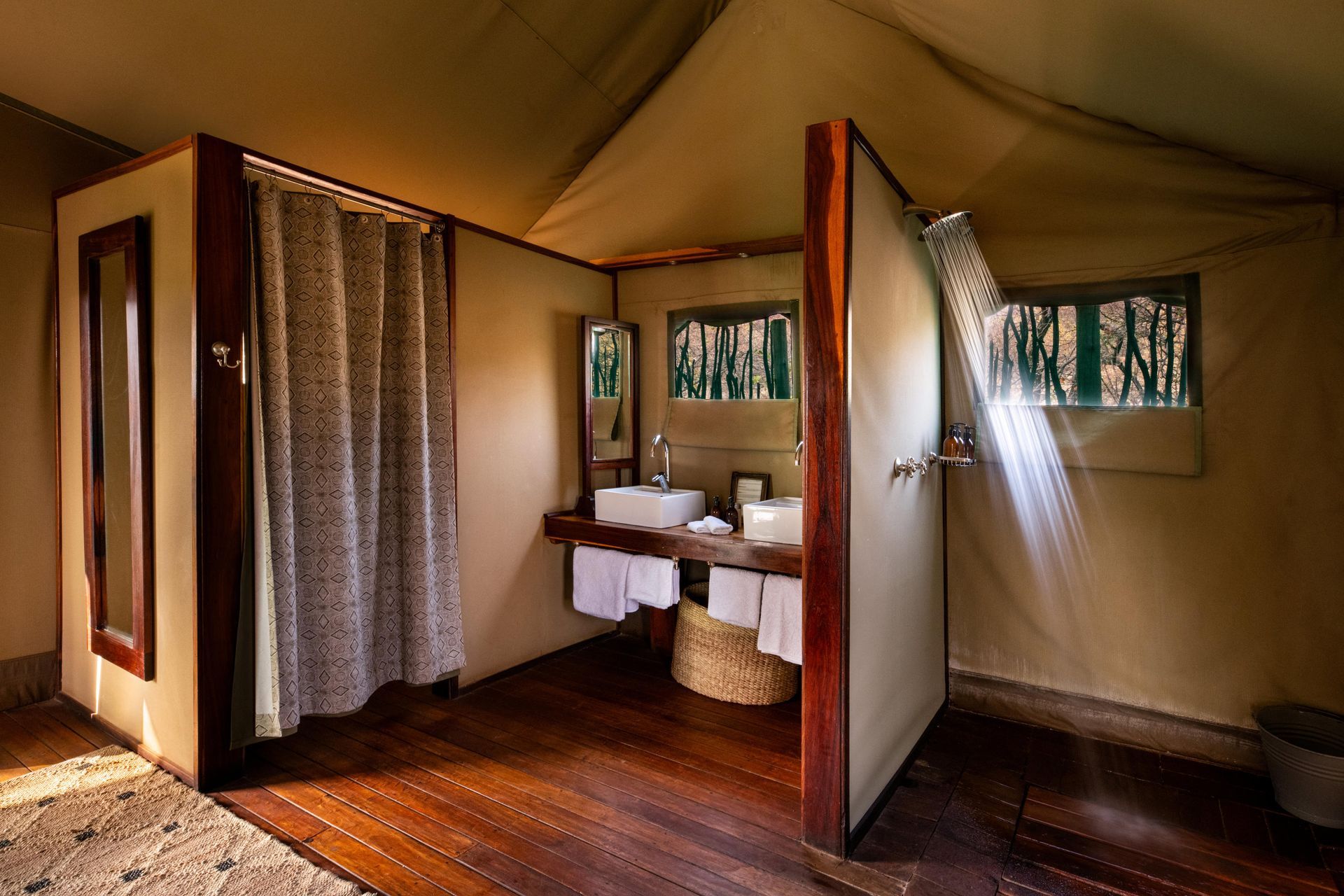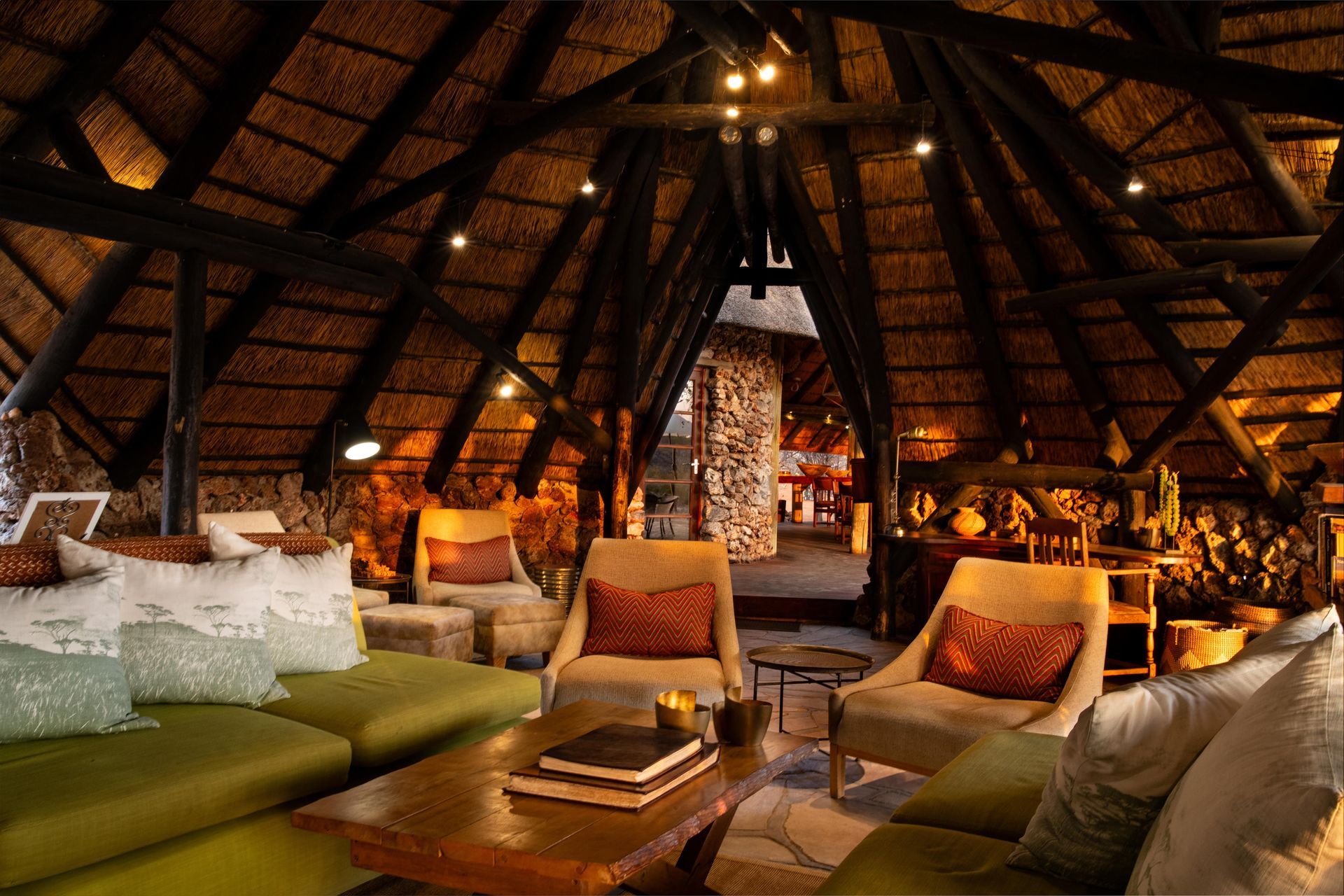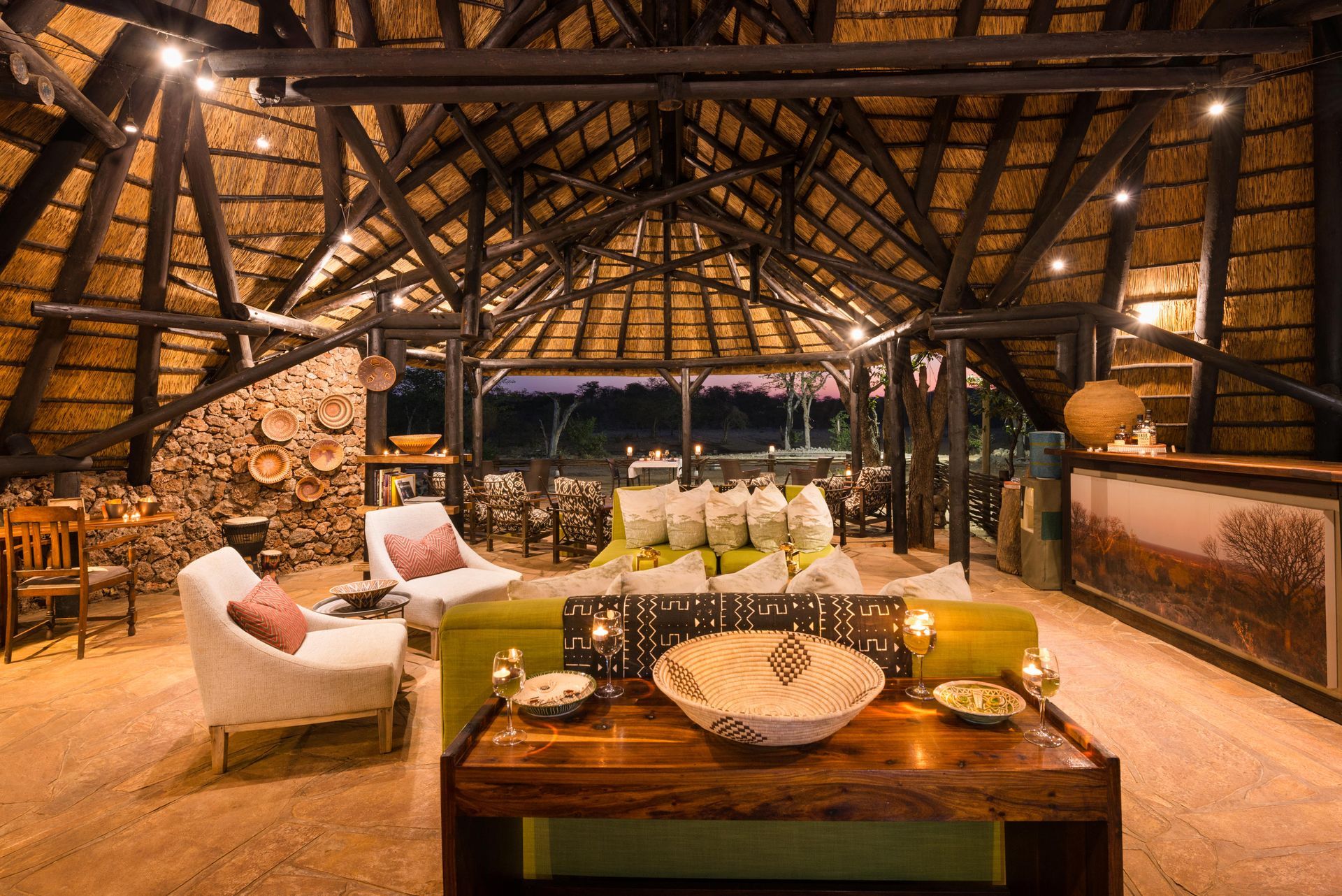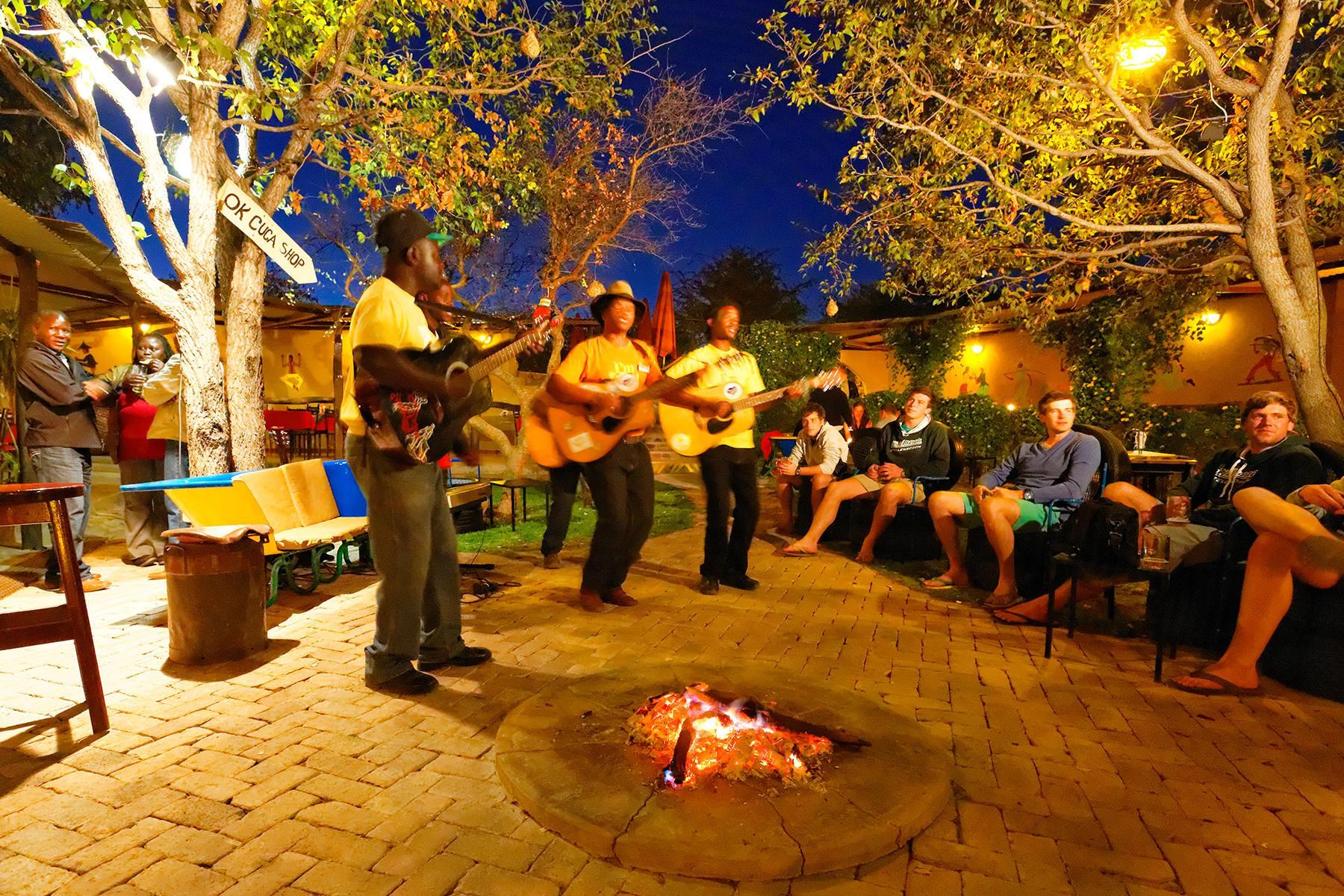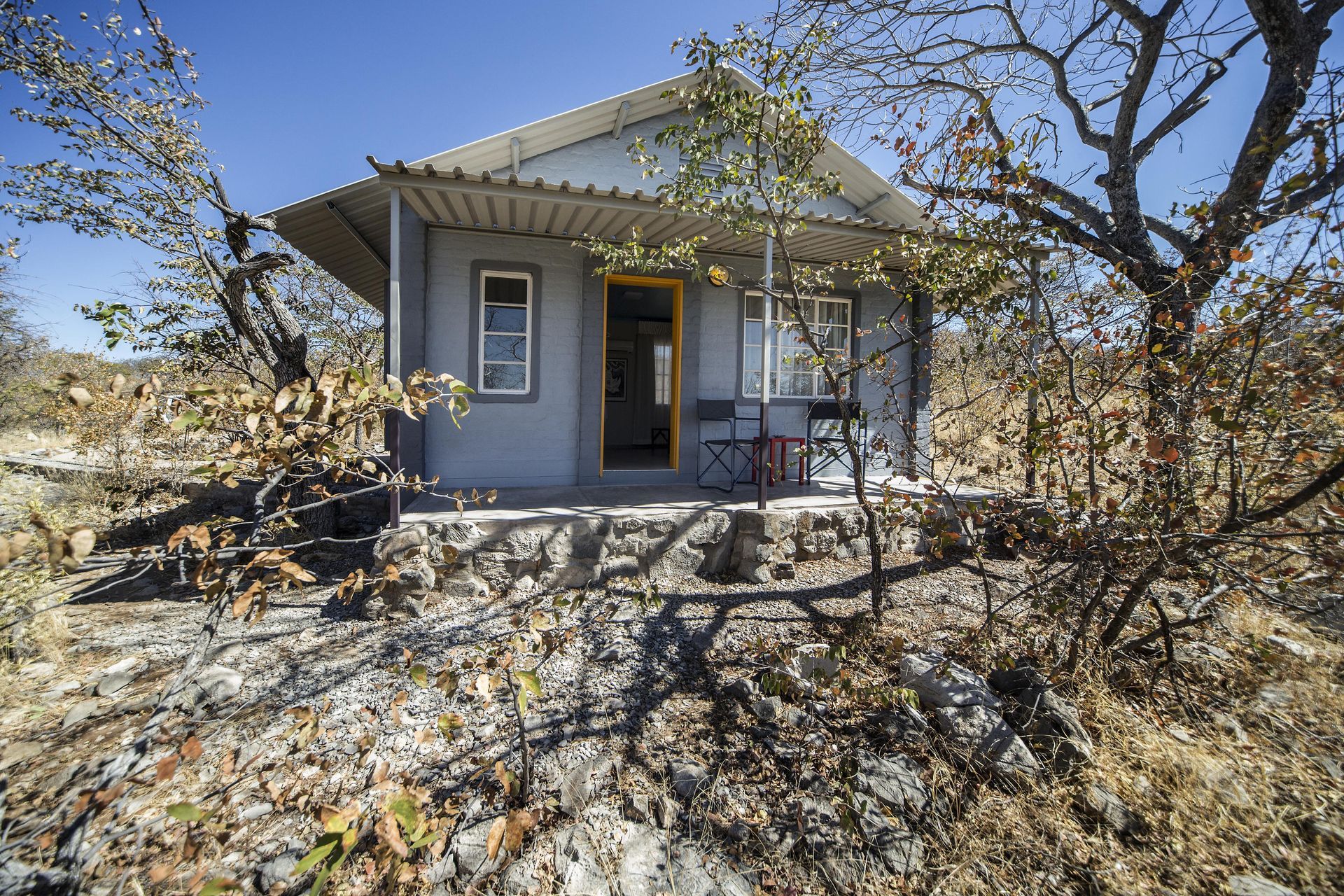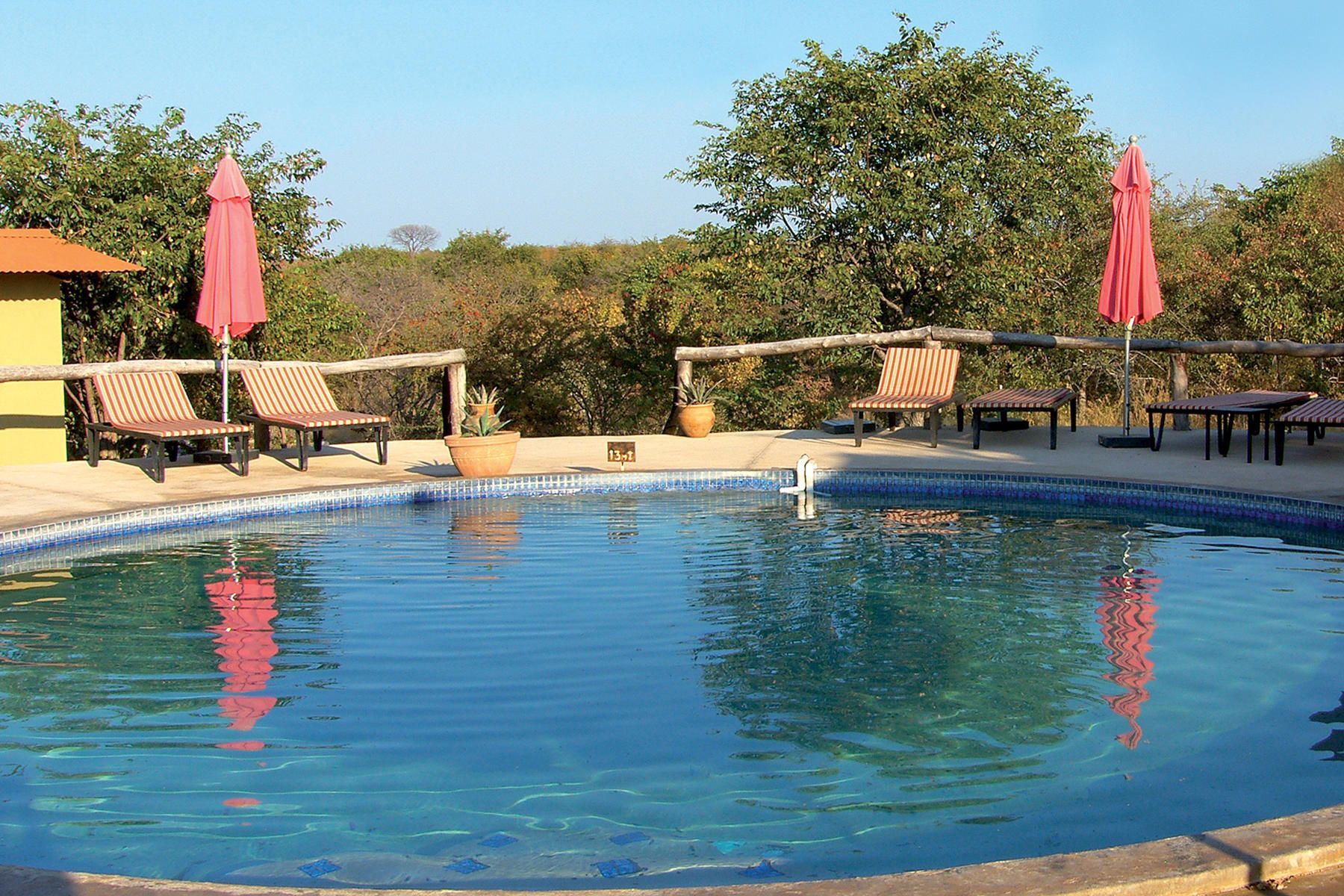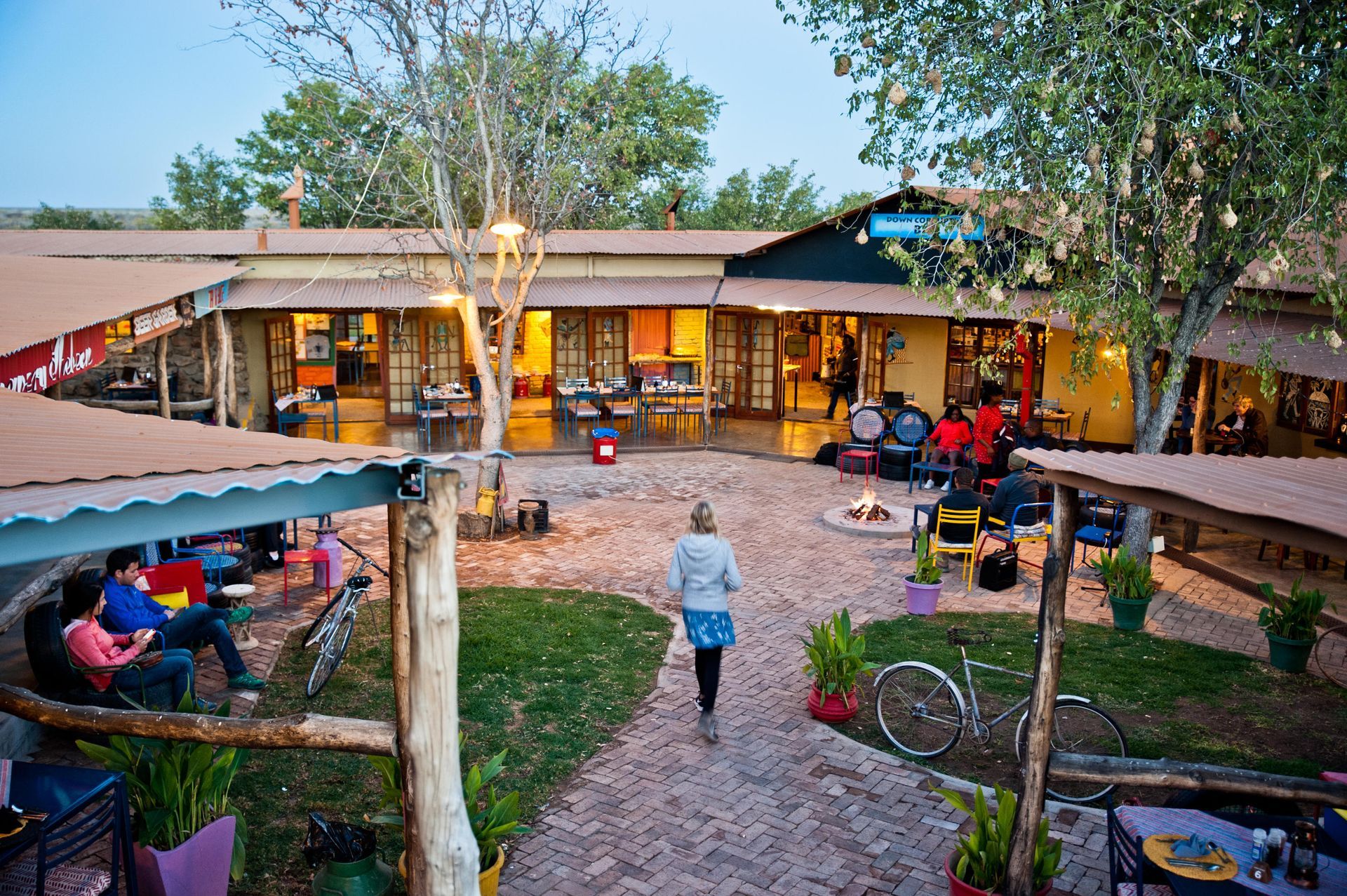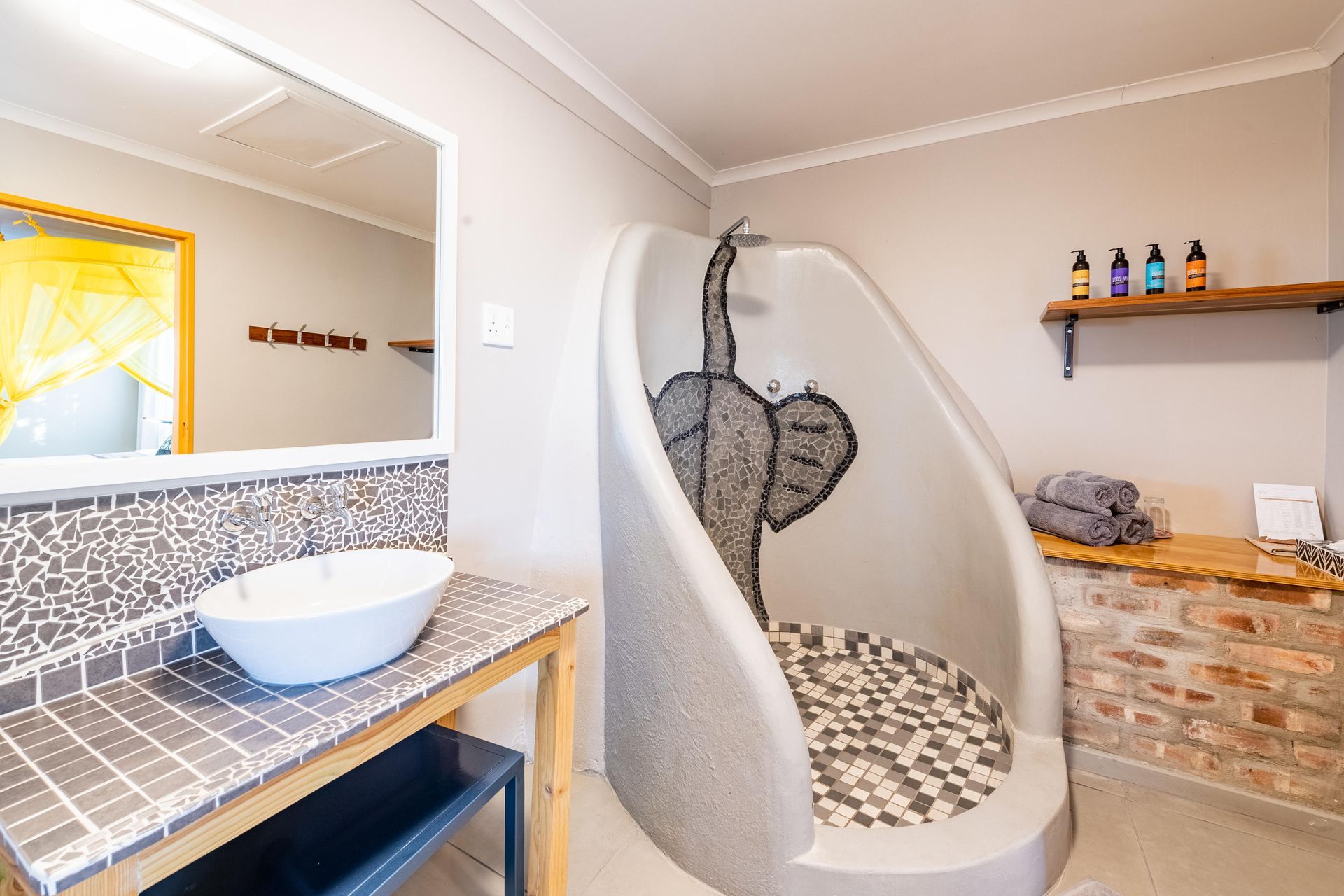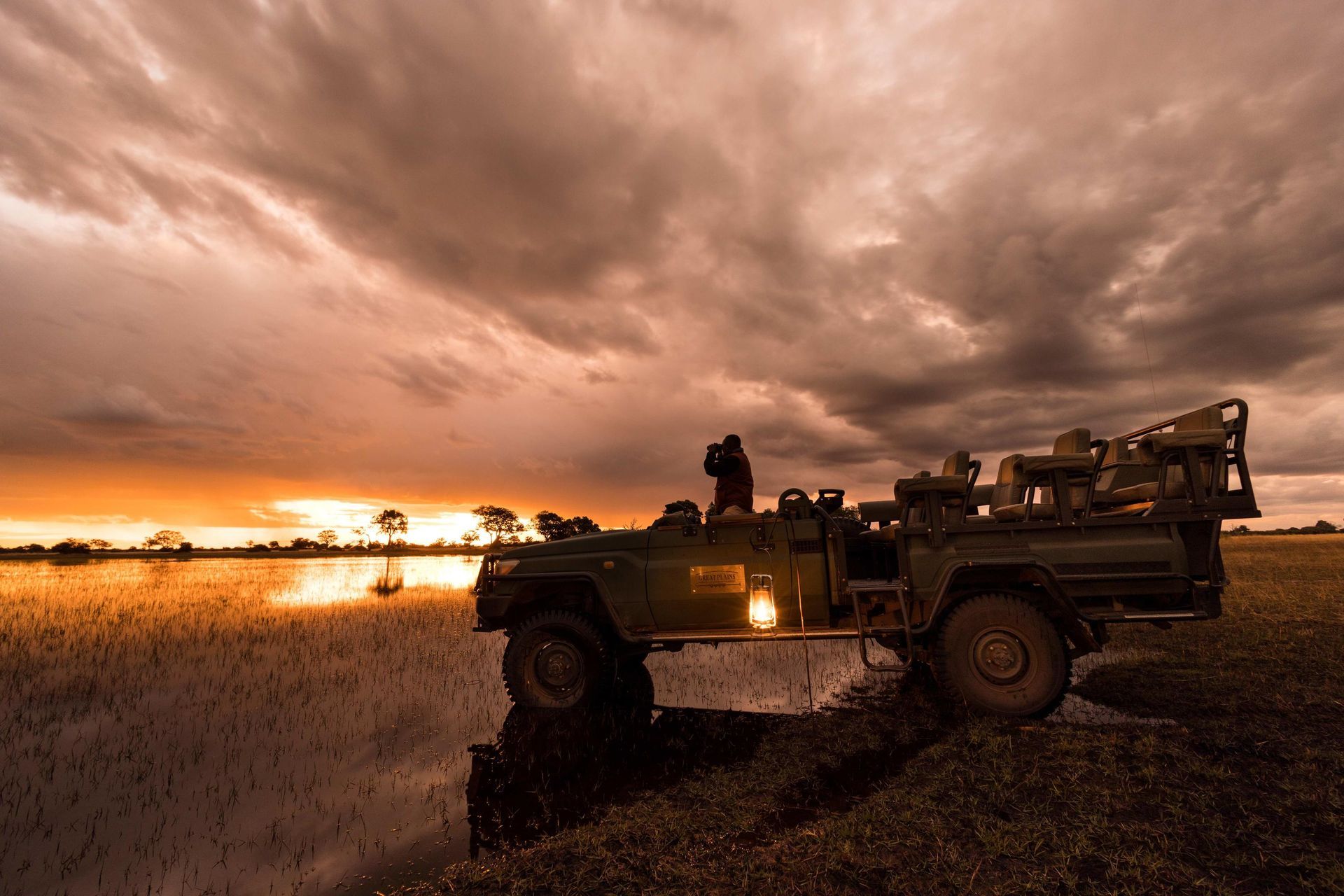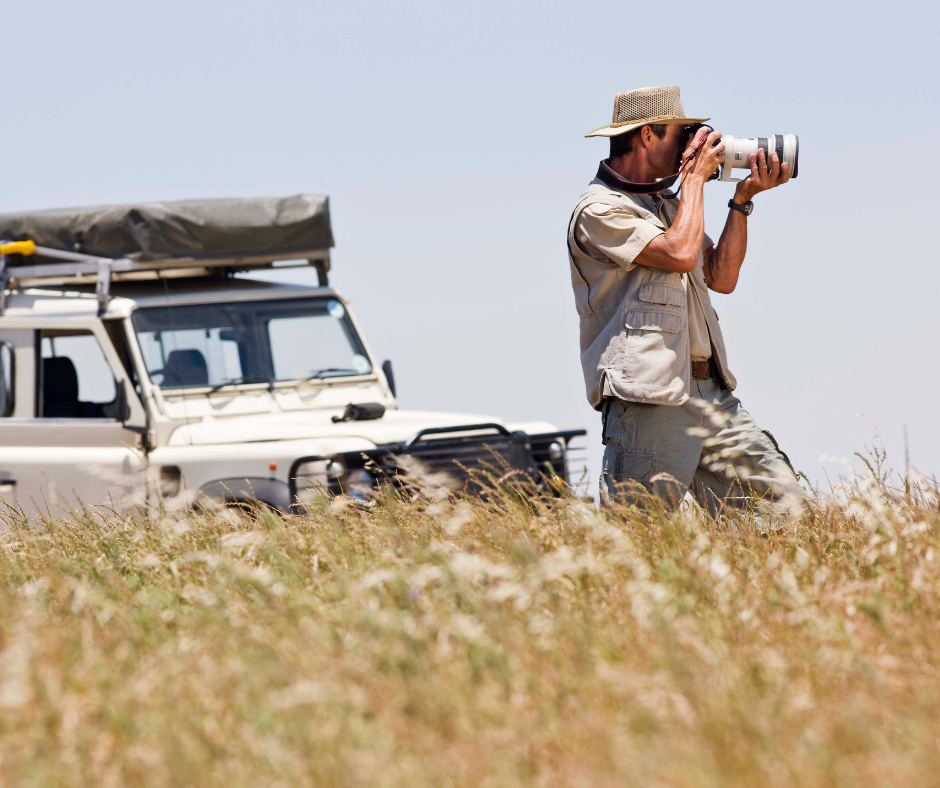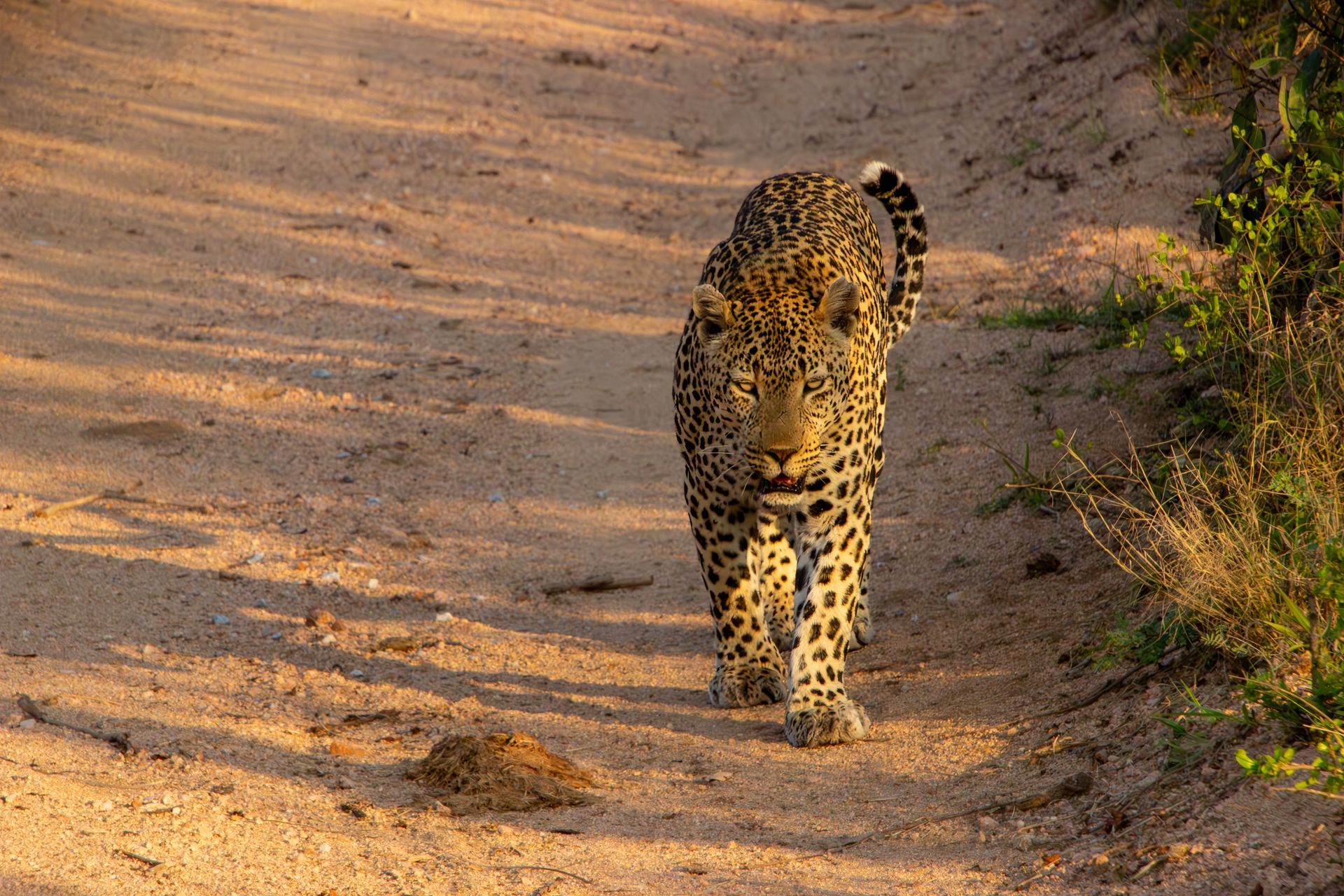The Ultimate Guide to Etosha National Park: Namibia's Iconic Safari Destination
Uncovering the White Sands of Etosha National Park
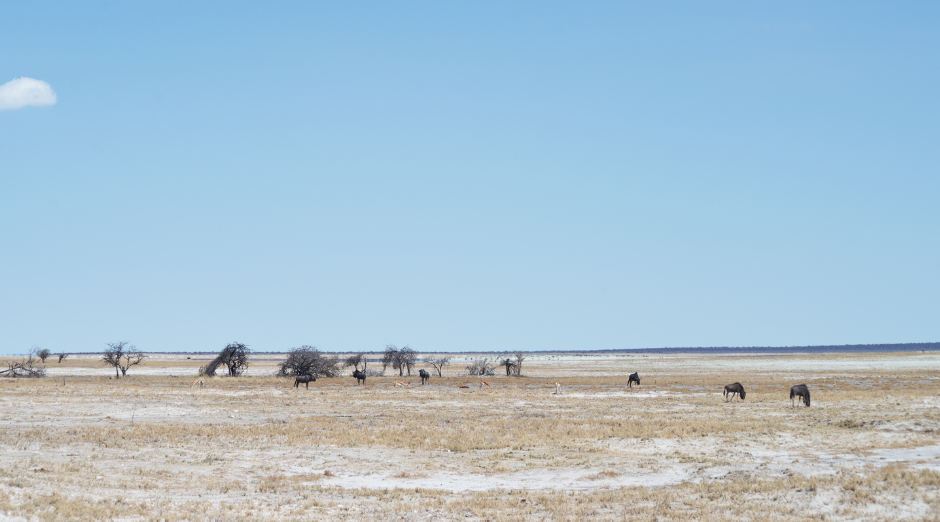
Namibia is a land of quiet beauty. It whispers its magic through red dunes, endless skies, ancient cultures, and a deep commitment to conservation. One of the most treasured jewels in its wilderness crown is Etosha National Park. Spanning more than 22,000 square kilometres, Etosha is a place where elephants raise dust clouds under a blazing sun, rhinos pace ancient trails, and wildlife congregates at waterholes as if drawn to a natural stage.
Unlike other safari hotspots in Africa, Etosha’s wildlife is concentrated and accessible. At the heart of the park lies the vast Etosha Pan, a shimmering white salt flat so wide it can be seen from space. This otherworldly backdrop forms the canvas for one of the most rewarding safari experiences in Southern Africa.
Let's unpack everything you need to know about Etosha, from its storied past to the best luxury safari lodges, conservation travel efforts, Martin & Antje's top tips, and crafting a truly bespoke itinerary that blends adventure, purpose, and comfort. Whether you’re planning a once-in-a-lifetime honeymoon or joining one of our carefully curated small group safaris, Etosha promises an unforgettable experience.
Read our ultimate beginners guide to Namibia
here

A Brief History of Etosha
Etosha, meaning "Great White Place," has long been a refuge for wildlife. Indigenous communities lived alongside its herds for centuries. The Hai||om people, a San-speaking group, were the original custodians of the land, living as hunter-gatherers in harmony with its rhythm.
In the early 1900s, German colonial authorities declared it a game reserve, and over time, the area evolved into the national park we know today. While Etosha has seen boundary reductions and challenges—particularly due to farming and land-use conflicts—it has emerged as a flagship model for conservation in Africa.
Today, it’s not just a place to see lions or elephants. It’s a sanctuary where rare species like black rhino thrive, where the rhythm of seasonal migration unfolds naturally, and where conservation and tourism coexist in harmony. The park also plays an essential role as a wildlife corridor—linking protected areas and enabling genetic diversity to flourish in Namibia’s arid north. Etosha is a keystone of Namibia’s conservation travel model: a place where responsible tourism funds critical environmental protection, community engagement, and sustainable land use.

Why Etosha is a Bucket List Safari Destination
Etosha’s charm lies in its contrasts. From mopane woodlands to savanna plains and the otherworldly salt pan, the terrain is as varied as the wildlife. Visitors can expect to see four of the Big Five, hundreds of bird species, cheetahs, hyenas, giraffes, honey badgers, jackals, and even the endangered black-faced impala. But more than the sightings, Etosha offers a feeling. A sense of space. A rawness that reminds you that you’re a guest in nature’s grand theatre. And unlike the densely populated game reserves in other countries, Etosha’s infrastructure allows for large areas with minimal human interference.
This is where privately guided safaris come into their own. With an expert guide by your side, you can slow down, track spoor, wait quietly at a waterhole, or explore off the beaten path. It’s safari as it should be: meaningful, immersive, unforgettable.
For travellers seeking deeper purpose, conservation travel in Etosha allows you to witness firsthand the efforts being made to protect endangered species. Many lodges partner with conservation initiatives, and some even offer guests the opportunity to participate in rhino monitoring, ecological surveys, or community upliftment programmes. These bespoke itineraries are designed for those who want more than just game drives—they want connection, impact, and insight.

Where to Stay: Luxury Safari Lodges in and around Etosha
Crafting a bespoke itinerary through Etosha means choosing the right places to stay. Whether you're seeking barefoot luxury, family-friendly comfort, or a romantic escape, Etosha delivers. Here are four standout options for luxury safari lodges that align with conservation values and unforgettable wildlife encounters.
Ongava Lodge & Ongava Tented Camp
Perched on a hill overlooking a bustling waterhole, Ongava Lodge is located within the private Ongava Game Reserve, directly adjoining Etosha's southern boundary. This lodge offers elevated luxury: stone chalets with sweeping views, gourmet meals, and some of the best guides in Namibia. Its sister property, Ongava Tented Camp, delivers an equally rewarding experience with a more intimate, canvas-and-thatch feel. Here, you’ll fall asleep to the sound of lions in the distance and wake to birdsong over the plains.
Both camps offer access to Ongava’s private reserve as well as guided excursions into Etosha itself. One day might include rhino tracking on foot; the next, a golden hour drive to Etosha’s iconic Okaukuejo waterhole.
Martin & Antje’s Top Tip: Book a few nights here to combine exclusivity with game-rich landscapes. The photographic hide near the waterhole is a must for keen photographers and a hidden gem for quiet wildlife observation.
The Ongava experience is deeply rooted in conservation. The reserve was established as a reclamation project—transforming overgrazed farmland into thriving wildlife habitat. Today, Ongava is home to both black and white rhino, numerous predators, and a healthy mix of plains game. Its research centre is one of the most respected in the region and is a cornerstone of conservation travel in Namibia.
Ongava Tented Camp is the perfect lodge to explore not only Etosha but the Ongava Reserve
Etosha Safari Camp
Just 10km from the Andersson Gate, Etosha Safari Camp blends Afro-chic design with local flair. It's known for its fun atmosphere, colourful decor, and a lively bar that often hosts live music and storytelling evenings. This lodge celebrates Namibia’s vibrant culture as much as its wildlife.
Chalets are simple yet stylish, nestled among mopane trees. Meals are hearty, the pool is refreshing after a long day on safari, and the location is perfect for daily drives into the park. The lodge also supports local artists and craftspeople, adding a unique cultural immersion to your stay.
Ideal for families, small group safaris, or travellers looking for a more relaxed atmosphere, this camp is also great value and works beautifully as part of a privately guided safari route.
Martin & Antje’s Top Tip: Use Etosha Safari Camp as a soft landing spot before diving into more exclusive camps. It’s also a great base for travellers flying in late or leaving early. The evening bonfire sessions with local musicians are a must-do.
Etosha Safari Camp is a wonderful way to explore Etosha on a budget
Planning a Bespoke Itinerary
A well-crafted itinerary can transform a safari from a holiday into a life-changing experience. Whether you’re travelling solo, with family, or as part of one of our intimate small group safaris, Etosha has something for everyone. Martin Meyer Safaris can create the perfect Namibia Safari for you,

Conservation at the Heart of the Safari Experience
Etosha isn't just about incredible wildlife. It’s a symbol of what’s possible when conservation, community, and tourism align. Choosing a safari with conservation impact means that your journey leaves more than just footprints—it leaves a legacy.
The park plays a vital role in preserving Namibia’s biodiversity. It protects one of the largest populations of black rhino in Africa. Lions, cheetahs, elephants, and antelope benefit from well-managed habitats and corridors into adjoining reserves.
Private reserves like Ongava have transformed overgrazed farmland into thriving ecosystems. These reserves act as crucial buffer zones and provide additional protected space for roaming wildlife. They also reduce the pressure on the park itself, allowing animals a wider range and guests more intimate encounters. Tourism revenue contributes directly to park maintenance, anti-poaching efforts, and local livelihoods. Staying at lodges that prioritise conservation ensures your safari has a lasting positive impact.
Martin & Antje’s Top Tip: Ask your consultation about conservation work at the lodges you will be visiting. Many offer behind-the-scenes tours, rhino tracking experiences, or insights into their sustainability practices. Every stay is an opportunity to give back and be part of meaningful conservation travel.

When to go to Etosha: Understanding the Seasons
- Dry Season (May to October): Peak game viewing. Water is scarce, so animals gather around waterholes. Skies are clear, temperatures are mild, and photography is exceptional. It’s also the best time for predator sightings.
- Green Season (November to April): Lush landscapes, dramatic skies, newborn animals, and migratory birds. Some roads may be muddy, but there are fewer tourists and lower rates. Expect beautiful sunsets and flowering grasses.
- Shoulder Months (April and November): These transitional periods offer a mix of both worlds. Wildlife is still visible, but crowds are thinner, and weather is dynamic.
Martin & Antje’s Top Tip: For serious photographers and birders, the shoulder months offer brilliant light and less crowding. Bring extra memory cards and a good lens for capturing birds in flight.
Practical Advice for a Safari in Etosha
- Pack for extremes: Warm layers for chilly mornings, light clothing for midday heat.
- Don’t forget binoculars: They make a world of difference, especially at distant waterholes.
- Charge up: Bring spare batteries and a power bank. Some camps are solar-powered and may have limited charging hours.
- Plan ahead: Lodges book out early, especially in high season.
- Be patient: Wildlife moves on its own schedule. The magic often lies in the wait.
Martin & Antje’s Top Tip: Include a few non-game-drive experiences like bush walks, hide visits, or cultural tours. They round out the safari and leave you with more than just sightings—they leave you with stories.

Etosha - A safari Destination you will never forget
Etosha National Park is one of those rare places that lingers long after you've left. Whether you're marvelling at a herd of elephants silhouetted against a pink sky or waiting silently as a lone rhino drinks under the moonlight, Etosha’s moments are unforgettable.
Through a carefully designed bespoke itinerary, staying at conservation-driven luxury safari lodges, and travelling with purpose, you can be part of Etosha’s story.
This isn’t just a safari—it’s a privately guided journey with conservation impact. It’s a small group safari, a honeymoon or a family trip designed to connect you with the land, the wildlife, and the people who call Namibia home.
Let Martin Meyer Safaris help you write your own chapter in this incredible wilderness. Adventure awaits.
Have you always dreamed of going on safari but don't know where to start ?
We offer a complimentary 1 hour safari consultation call to simplify the process.

